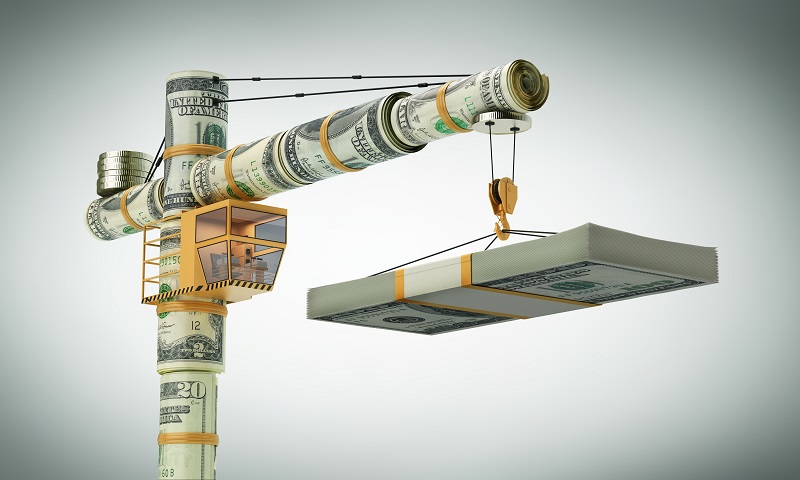When managing your credit, two critical strategies emerge: credit repair and credit building. Although they share a common objective of improving your credit score, these approaches address different needs. Credit repair focuses on rectifying errors, inaccuracies, or negative items on your credit reports. In contrast, credit building aims to establish a positive credit history over time.
In the last few years, credit debt has increased. Over 34% of Americans have monthly credit card debt. These figures unambiguously demonstrate how widespread credit card debt is among Americans. Knowing the differences between credit repair and credit building is essential for those seeking to boost their creditworthiness.
This article explores the differences between credit repair vs credit building, helping you decide on how to enhance your credit profile and gain your financial goals.

Credit Repair
Credit repair is essential in improving your credit history and standing. That’s because it helps to correct any misleading or inaccurate information on your credit reports. These inaccuracies include false accounts, duplicate entries, or accounts that do not belong to you.
Credit repair aims to raise credit scores by addressing and resolving inaccuracies. You can enhance your creditworthiness to lenders by eliminating negative items and ensuring that credit reports are accurate.
Process of Credit Repair
The credit repair process involves solving errors and determining outdated data credit report information. You can start this procedure by accessing credit bureaus or use online tools provided by credit reporting firms.
When ready, you can launch a formal complaint if you have the necessary evidence and documents to back up your claims. Then, the credit bureaus can remove any disputed items found to be inaccurate on your reports.
Credit repair agencies offer various services designed to solve credit-related issues. Some of those services include analyzing credit reports, identifying inaccuracies, and credit monitoring. Additionally, they may guide on credit-building strategies and financial management practices.
Examples of Credit Repair Companies
Various companies operate in the credit market, each offering its own services and expertise. Examples of well-known credit repair companies include Lexington Law, CreditRepair.com, Sky Blue Credit Repair, The Credit People, and Ovation Credit Services. Ensure to researching and pick a reputable credit repair company that aligns with your specific needs and budgetary considerations is essential.
Benefits and Limitations of Credit Repair
Aside from identifying errors and inaccuracies in credit reports, successful credit repair can improve credit scores. Removing negative items and addressing mistakes can improve your creditworthiness. With better credit, you become more attractive in the eyes of the lender, which leads to favorable loan terms and more credit opportunities.
You can contest any inaccurate or unfair information on your credit reports with credit repair. The process guarantees the accuracy of your credit history and eliminates negative items from interfering with your creditworthiness.
Also, credit repair leverages the protection of the Fair Credit Reporting Act (FCRA). This body establishes guidelines that govern credit reporting agencies and ensures the accuracy and fairness of credit information. With this, you can challenge and remove inaccurate or unfair information from your credit reports.

Limitations of Credit Repair
Credit repair limits vary based on specific credit repair services and individual circumstances. Here are factors to consider:
Not a Guaranteed Outcome
Credit repair does not guarantee a specific outcome or result. Although it helps to remove inaccuracies and boost credit scores, its effectiveness depends on the prevailing circumstances and disputed information accuracy. In that case, managing expectations and understanding that results may vary is necessary.
The Legality of Credit Repair
While legitimate credit repair companies provide services within the legal framework, the credit repair industry is known for frauds. In that case, it’s crucial to thoroughly vet any credit repair company before engaging their services. The Federal Trade Commission (FTC) warns against companies that guarantee the removal of accurate negative information or promote the use of illegal practices, such as creating a new identity or credit privacy number. That’s why you should be careful when dealing with credit repair companies.
Time and Consistency Requirements
Credit repair is a challenging endeavor. It requires time and consistency to dispute negative items, follow up with credit reporting agencies and creditors, and ensure the accuracy of credit reports. Individuals seeking credit repair should be ready for a long journey, probably months or longer, to see significant improvements in their credit history and scores.
Credit Building
Credit building is a crucial aspect of personal finance that involves establishing and strengthening your credit history and profile over time. It mainly benefits individuals with thin credit files or limited credit history.
Here are the benefits of credit building:
Establishing Credit History Over an Extended Period
The primary objective of credit building is to create a positive and extensive credit history. Lenders and creditors rely on credit history to assess an individual’s creditworthiness and determine the likelihood of timely repayment. You can establish a strong credit foundation by demonstrating responsible credit management over an extended period.
Particularly Beneficial for Individuals With Thin Credit Files
Credit building is essential for people with poor credit history or thin credit files. By actively engaging in credit-building activities, such as making on-time payments and responsibly using credit, you can gradually enhance your creditworthiness and expand your credit profile.
Strategies for Credit Building
One of the best credit-building strategies is consistently paying your bills and credit obligations on time. Undoubtedly, late payments negatively impact your credit score and make it challenging to obtain favorable credit terms in the future.
Also, responsible credit utilization involves using credit accounts judiciously and avoiding excessive debt. It’s advisable to keep credit card balances low and avoid maxing out credit limits since increased credit utilization can affect your credit score.
Individuals with limited or poor credit history can benefit from secured credit cards since they require a security deposit as collateral, reducing lenders’ risk. A secure credit card and timely payments can gradually build a positive credit history.
Benefits of Credit Building
Maintaining a favorable credit record can benefit your financial health in several ways. Here’s what good credit can do:
- Higher Credit Limits: With a credit building, you can access more over your credit limits. This can boost your purchasing power and how you manage your finances.
- Faster Loan Approval: If you have a favorable credit record, your chances of getting a mortgage or auto loan increase significantly. Responsible credit management is preferred by lenders when giving loans.
- Better Loan Terms: Since most lenders rely on your credit score to evaluate your financial reliability, maintaining good credit can lead to lower interest payments throughout the loan’s duration.
- Improved Job Prospects: Some employers review credit reports during the hiring process. Therefore, if you have an excellent credit history, the probability of securing a job, particularly in finance and confidential data roles, rises significantly.
- Lower Insurance Premiums: Insurance firms commonly use credit scores to establish car, house, and rental insurance policy rates. Having good credit translates to reduced premiums, ultimately leading to savings.
Limitations of Credit Building
- Requires time and consistency: It takes time to build credit since it requires consistency and patience. As such, you must consistently practice positive credit habits like timely bill payments and low credit usage low.
- Financial Constraints: When building credit, you need access to credit accounts. In this case, those with poor credit ratings may not get loan accounts.
- Credit History: In most cases, having a bad credit rating can make it challenging to build credit. That’s because most creditors use your credit history when assessing your creditworthiness.
Credit Repair vs. Credit Building: Choosing the Right Approach
When choosing between the two options, it’s crucial to consider your situation and goals. Some credit reports contain many inaccuracies. In such cases, credit repair is often better. With individuals that have some credit history, credit building is best in the long run.
Here are factors to consider:
Current Credit Situation
When choosing the right credit improvement approach, assess your credit standing. Check if your credit report has harmful information that needs credit repair. Also, pinpoint legitimate errors or outdated information that affect your credit score.
Specific Goals and Needs
Another way to select a better option is by considering your financial goals and intentions. Credit-building strategies are best for building a credit history or a favorable credit profile from scratch. However, if your credit report has specific bad points that need attention, you may need credit repair.
Timeframe for Desired Results
Building credit is a gradual process that takes time. Credit repair, by contrast, can produce faster results depending on the complexity of the problem. The best way is to evaluate the schedule for meeting your credit goals.
Conclusion: Credit Repair versus Credit Building
Credit repair and building are two strategies for improving your credit score and achieving long-term financial goals. To find the best approach, assess your credit situation and define your specific goals and needs. Making decisions based on your unique circumstances is essential regardless of your path. If necessary, consult a financial expert or credit counseling agency for expert advice on solving the complexities of loan repair and construction.
If you need tradelines to boost your score, visit tradelinenetwork.com
